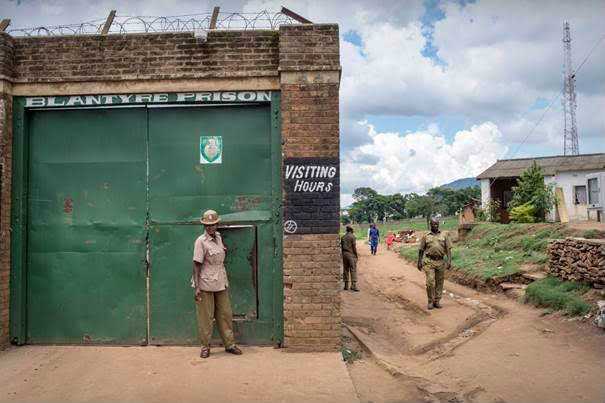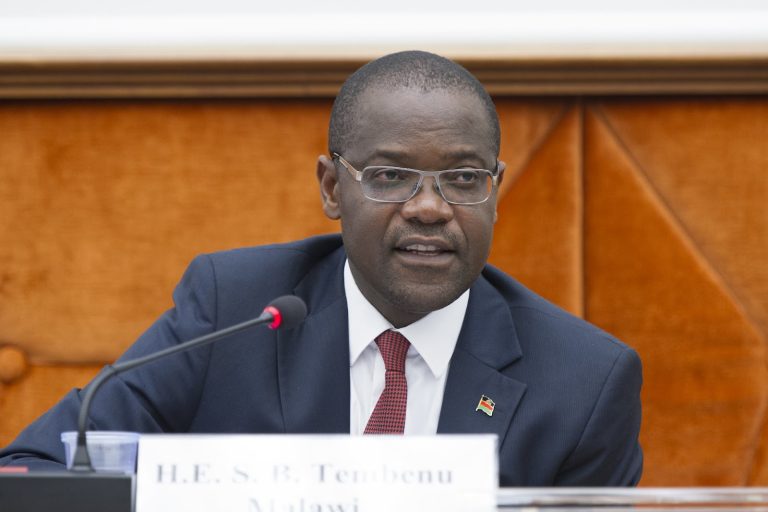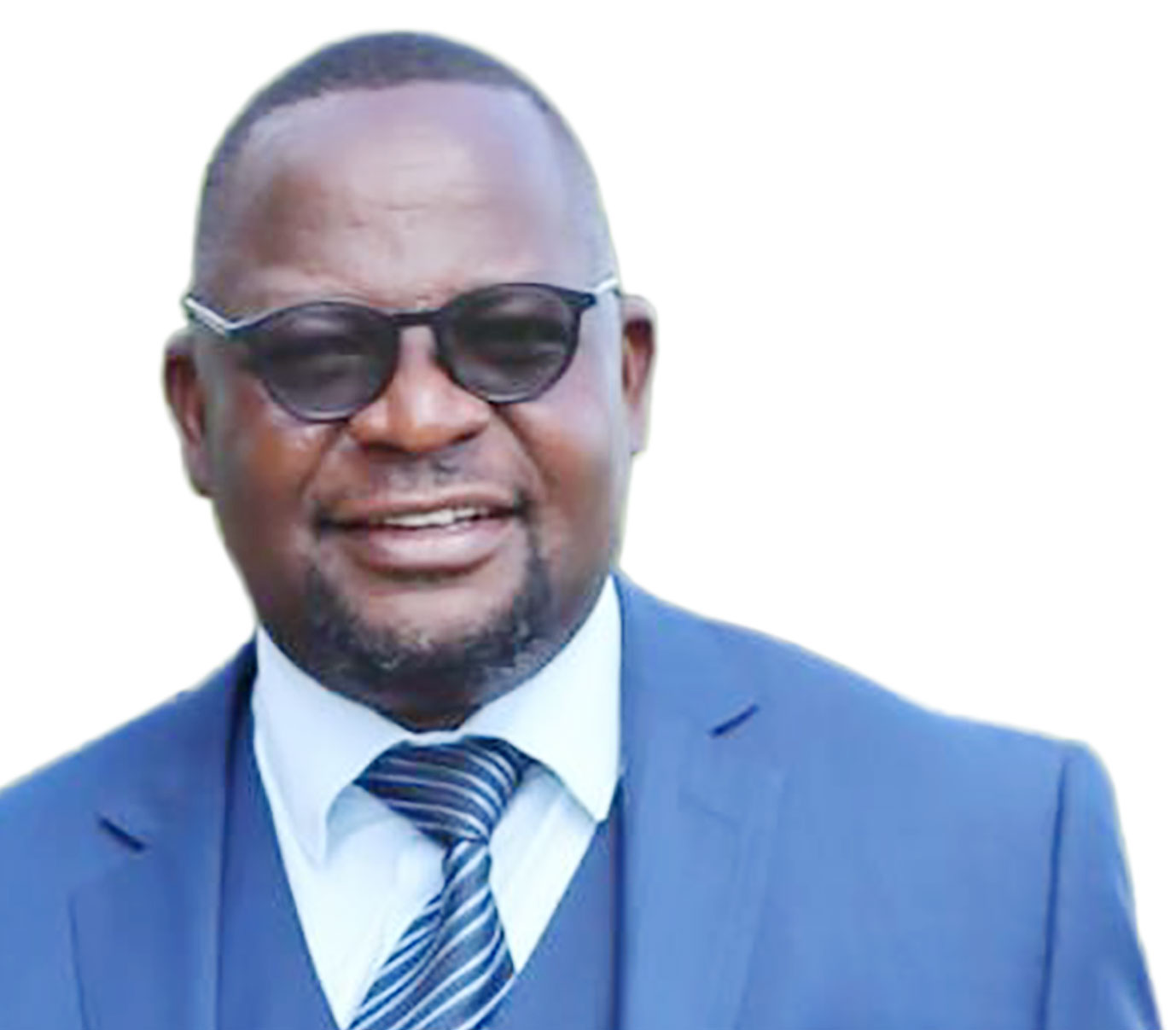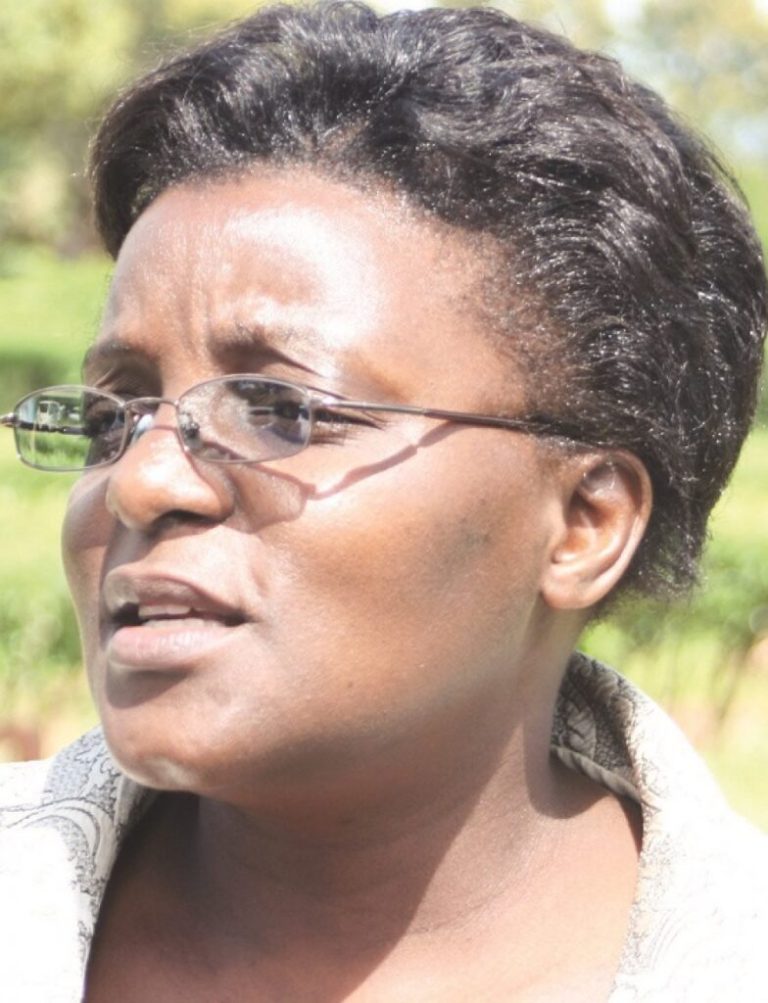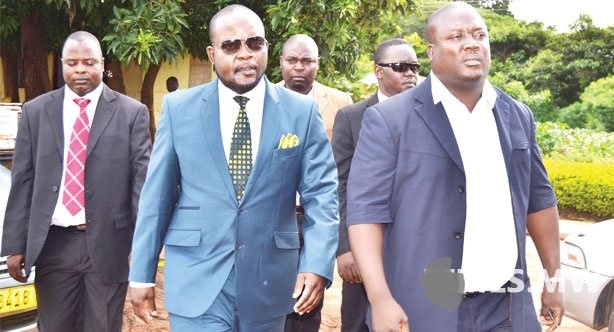- No condoms policy in prisons exposes inmates to STIs and HIV
- Government waits until the infections to starts providing ART
- Inmates die in their cells from STIs because of the shame to seek medical help
- Other Prisoners Using Catheters After Losing Control of Their Rectum Muscles
BY JACK MCBRAMS
Malawi’s prisons are a hazard. The conditions remain harsh and potentially life-threatening due to overcrowding and poor sanitation; inadequate food, potable water, heating, ventilation, lighting, and health care; and torture. However, there is a new dimension. A three-month PIJ investigation had revealed that a combination of poverty and harsh prison conditions push inmates towards homosexuality and sodomy—where some male prisoners are forced or trapped into having sexual relationships with fellow prisoners to obtain favours such as space to sleep and money for their needs, thereby spreading the risk of HIV and STIs.
Since the Malawi government neither permits nor recognises homosexuality, condoms are not permitted in Malawi’s prisons.
Yet, an investigation by PIJ has revealed that a shocking number of inmates in Malawi’s 30 prisons practise homosexuality. We spoke to prison warders and inmates, who confided that homosexuality, which in other instances starts from sodomy instances, is part of the prison ecosystem, and it is practised openly, right before the eyes of the authorities.
However, the biggest risk is that with most of the prisoners having multiple sexual partners, having unprotected sex means that the spread of HIV and STIs is a clear and present danger.
POOR SANITATION, POOR DIET, OVERCROWDING & PRISONER ABUSE
According to the Inspectorate of Prisons, the government has remained largely noncompliant with the High Court’s 2009 requirement to improve prison conditions.
Annual inspection tours by the inspectorate across all prisons and holding facilities in Malawi found recurrent problems of poor sanitation, poor diet, overcrowding, prisoner abuse, poor ventilation, detention without charge beyond 48 hours, understaffing, prison staff corruption, and insufficient prisoner rehabilitation such as education and vocational training.
Overcrowding and malnutrition remain the biggest concerns. There are 30 prison stations in Malawi. As of August 12, 2022, the total prison population was 15,935 in space with a theoretical holding capacity of 7,000.

FIGHTS AND STABBINGS…INMATES FIGHTING OVER BOYFRIENDS
A prisoner, who is serving time at Zomba Maximum Prison, told PIJ that the issue of homosexuality in Malawi’s prisons is an open secret and most of it is consensual between the partners.
“Firstly, for you to get the real picture, there is very little incidence of actual ‘rape’ in prison….perhaps a few isolated incidents. What the real challenge is, specifically with Malawi prisons, is that you have a system of male prostitution similar to what goes on outside with women. There is usually a consensual agreement between the parties to engage in homosexual relationships,” the Zomba prisoner told PIJ.
But why is this so?
“The answer is that because of the extremely congested prison conditions and extremely poor quality and quantity of food, most young inmates from mostly poor backgrounds fall victim to this sort of thing. Once they come into prison, they have no space to sleep and no access to food.
The inmate tells PIJ that as a matter of survival, the young offenders are enticed into homosexual relationships with older and more established inmates within the system who can then afford to arrange space to sleep and better access to food and other petty luxuries like biscuits and milk, frozy (a fizzy drink) and the like.
“These might seem like simple items, but in prison, these are ultimate luxuries. In addition, the young guy will be given Chamba as well on a daily basis. So, there is a ‘mutual exchange’ just like ordinary prostitution. Only the prison arrangements can be long-term and result in STI and HIV infection because Malawian prisons do not offer condoms for such relationships in prison. So, you end up with a lot of people exposed to these diseases simply because of illiteracy and ignorance on how they are transmitted as well as prison staff not supplying condoms,” he says.
He added that, as a result of the transmitted infections, many of the inmates end up on ARV treatment which the prisons do offer.
“Now one would think homosexual relationships would be more prevalent in countries with more liberal attitudes like South Africa, but because the incentive here is due to poverty factors and the government’s lack of resources in terms of adequate accommodation and food, the proportion of inmates engaging in homosexual relationships is alarmingly high.”
“In the big prisons, especially Zomba, Chichiri and Maula, I’d estimate more than 60 to 70 per cent of inmates engages in these relationships. In fact, the practice is so prevalent that they actually call them marriages. But the root cause is poverty and poor government resources.”
He, however, noted that there is a very good system and funding for ARV treatment which are somehow always in supply as well as a number of NGOs providing testing and treatment for sexually transmitted diseases.
“However, it would be better if the rates were not so high in the first place! If most of these young inmates could avoid infection, then they wouldn’t need all those ARVs and STI treatments. So, we have a situation where the prisons are very busy and willing to deal with the symptoms but not the actual causes.”
A former inmate, who served a seven-year sentence at Chichiri Prison for armed robbery, confessed to having taken part in homosexual acts during his stint.
“It’s a prison, one has no choice. Actually, when you don’t take part [in homosexual relationships], you’re outlawed and even targeted. It’s the norm in prison; it is all part of prison life. People can judge us all they want, but I don’t think anyone would understand unless they spent time in prison,” he said.
SOME PEOPLE HAVE FOUR OR FIVE ‘WIVES’
A prison warder at Chichiri Prison in Blantyre, who spoke to PIJ on condition of anonymity, says while the government may turn a blind eye to homosexuality in prisons, it is evident.
“If I had the power, I would have legalised it [homosexuality] because everyone knows about it. At the [prison] clinic, we deal with so many cases of STIs and other diseases such as the stomach getting swollen,” he disclosed.
“Over half of the prisoners are involved in homosexuality. It happens all the time. It’s the same situation across all prisons in Malawi,” he says.
The warder also confided that there have been cases where inmates have died in their cells from STIs because they have been ashamed to seek medical help.
“Because it [homosexuality] is illegal, they cannot seek help from the prison clinic and they end up dying in their cells,” he said. “Sometimes, the people are not able to report so their friends report and the clinicians visit them in the cells. If it is bad, we take them to the closest general hospital.”
But, he says, if they are brave enough, they can visit the prison dispensary where a qualified clinician treats them.
He confided that, as a result of homosexual activities, a couple of prisoners have catheters because they have lost control of their rectum muscles.
“But what I can say is that homosexuality is very rampant in prisons, especially in youngsters. What happens is that some of these kids are really young, as they usually hide their ages so that they can be sent to prisons and not reformatory centres. So, these young kids are in demand in prisons, and the older prisoners usually fight over them.”
The warder, who has also served in several other prisons in the country, says the decision to partake in homosexuality in prison is entirely based on the need for resources and protection.
“Bread is gold in prison. Even tea is very rare,” he says.
He further confided that when mandatory HIV tests are conducted for incoming inmates, 70 percent of them test negative.
“But test them after a year and they all test positive!” he claims.
He notes that one of the biggest problems in prisons is people having more than one sexual partner, thus spreading the risk.
“Some people have four or five ‘wives’ and this happens, and it worsens the HIV situation. Actually, there have been cases where inmates have been stabbed because they were seen chatting with someone’s ‘wife’. Such cases are common, people fighting over boyfriends.”
He speculates that one of the factors that contribute to homosexuality in prisons is that there is too much close contact due to space limitations when they are sleeping.
“It also happens that they take turns…one is a wife and another husband the other day. These things are illegal so, as a prison, we cannot come out to talk about these issues,” he says.
The warder says HIV is a very serious problem in the prison system.
“It’s actually a crisis.”
He says, realistically, there should be fewer cases of HIV in prisons because men and women are housed in their own sections.
Overview of an overcrowded cell portrayed early in the morning (6 am) The prisoners are awaiting authorization to go out to the common space after some 14 hours spent in critical condition.
“ALLOW PRISONERS CONJUGAL RIGHTS”
Masauko Chamkakala, who spoke to PIJ in his capacity as director of the Malawi Legal Aid Bureau before he was appointed Director of Public Prosecution last week, says one of the things that should not stop as a human being is the access to life amenities.
“In other jurisdictions, prisoners have what they call conjugal visits, where their partners can visit them and help them out. Without that, a human being is a human being. Then they will turn into serious acts of homosexuality, even sexual assault,” he says.
Chamkalala notes that medical research conducted in one of the prisons discovered that over 24 per cent of the prisoners had STIs, which they did not have when they were committed to that prison.
“So what that is, what does that tell you? It’s indicative that there is unregulated, uncoordinated and maybe even illegal sexual activity taking place within the confines of the prison. So, my thoughts are that in some of these things, we shouldn’t wait for donors. We should not wait for cooperating partners as if we cannot think for ourselves to try to address them.
“I have gone through the Prisons Bill countless times. Of course, that aspect of conjugal visits is not there. But I strongly believe it’s an element which needs to be included, otherwise, we’re trying to hold our brothers and, maybe to some extent even our sisters, as if they’re animals.
“But even an animal has access to sex. So, we just have to find a way towards these people. They are human beings at the end of the day.”
Malawi Prison Service spokesman Chimwemwe Shawa said it is inevitable to have homosexual activity within the prisons, given the fact that people have become more open about their sexual orientation in Malawi.
“By now in Malawi, every institution, including Malawi Prisons Service, should now accept the possibility of having homosexuals. With lots of Malawians coming out clear that they are homosexuals, we can’t rule out the fact that we might have homosexuals in our prisons, since we have prisoners coming from the very same societies where homosexuality is gradually gaining ground. But as it stands, no prisoner has come out clear to declare that he is a homosexual,” he said.
He, however, said he would not know the extent to which homosexuality is practised in prisons.
“I cannot delve into statistics because no valid survey has been conducted on the same and no results have been shared with the Malawi Prison Service. We rely on what has been reported by those who are abused, since these things happen behind our backs, especially at night in their cells. We encourage stage leaders (anyapala) to be our eyes and report such cases. So, based on what is reported to the authorities, I wouldn’t say it is rampant,” he said, but added that any case that is reported to the prison authorities is dealt with as a criminal case.
“We only deal with issues that are reported. If a prisoner reports any sexual abuse, specifically that of sodomy or homosexuality, we regard that as a criminal offence and the issue is handled in coordination with Malawi Police Services. Recently, we had a case at Bzyanzi Prison and the case was handled by the courts.”
“We encourage prisoners to report any abuse by their fellow prisoners, and even those orchestrated by our officers. Our role is to continuously encourage prisoners who might be abused or see others practising homosexuality in prisons to report them to the authorities because homosexuality remains illegal, hence as a law-abiding security institution, we cannot entertain such illegal practices to be happening under our watch.”
High Court Judge Ken Manda, who chairs the Inspectorate of Prisons, said they are investigating the issue of homosexuality in prisons.
“We have been told that there are cases, but we don’t have proof. The matter is still under investigation,” he said.
Human rights lawyer Chikondi Chijozi, who has extensive experience working with prisoners, notes that inmates who are caught taking part in homosexual acts can be prosecuted.
“The law criminalises both consensual and non-consensual sexual relationships between people of the same sex. Being an offence, the State can prosecute anyone alleged to have committed the offence.”
“The issue is whether it should be the business of the law to regulate how people should have sex. In cases where a person did not consent, obviously, that’s a different story, but for consenting adults in the privacy of their bedrooms, why should that be the business of the law? The way the law is also pushing men into silence when they are victims of sexual abuse by other men because they also fear that they might be prosecuted,” she added.
Revered legal thought leader Edge Kanyongolo told PIJ that there is a need for fundamental reform of the system and its institutions to reduce overcrowding; such as building more prisons and encouraging courts to use more non-custodial punishments.
“Also, the prisons can introduce legitimate income-generating opportunities for inmates to address poverty and monetize their labour, with the State and the inmate sharing the proceeds. They can also enforce the principle of ‘segregation’ to separate adults from juveniles, hardcore from first offenders, in order to minimise unequal power relations that fuel abuse and exploitation. Another solution would be to enhance monitoring of cells and other risk areas, for instance by CCTV and by swiftly prosecuting abusers,” he said.
Both Ministry of Homeland Security principal secretary Oliver Kubambe and Ministry of Health spokesperson Adrian Chikumbe asked for questionnaires, but they had not responded by the time we went to press.

